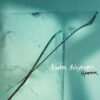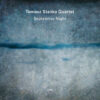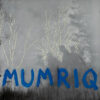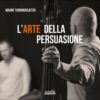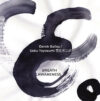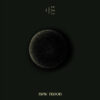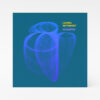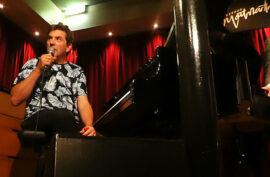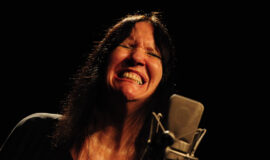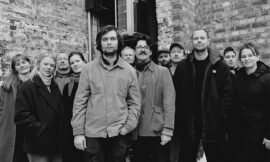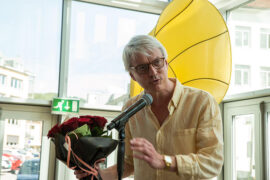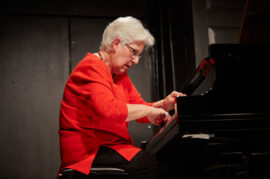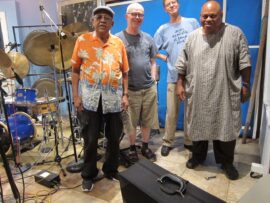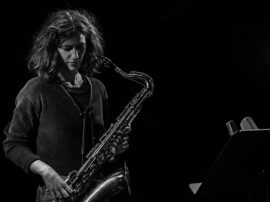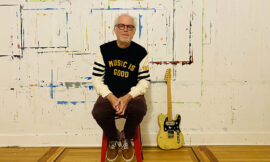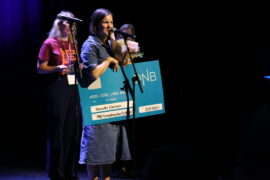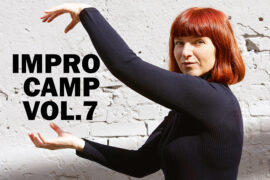
German composer-drummer-percussionist Hannes Lingens (known for the free jazz quartet Die Hochstapler) devised PLAY as a set of 100 cards with instructions for ensembles of any size and instrumentation. Each player follows the written text on the cards at their own pace, individually. The individual instructions vary from precise (two contrasting sounds, a very long sound) to vague (something funny, thinking of something you smell), and chance procedures demand a high degree of personal interpretation. Lingens devised this music play after composing Music for Strings (Edition Wandelweiser Records, 2021), wishing to stress that what we hear on that album is just one out of endless ways this could sound, and it is very much dependent on the person or people who played.
Israeli sax player Tom Soloveitzik, who wrote the liner notes to PLAY and plays in one of its versions, compared the improvisatory character of PLAY to practices used in Japanese Noh theater, as in both productions, the actors (or musicians) learn their part alone, and they meet on stage in front of an audience for the first time together as an ensemble during a play performance. “Meeting other vibratory-like creatures is part of the play practice, part of developing the self in contrast to the other, keeping one’s contours and dissolving them at will”. Soloveitzik also quotes modern composer Christian Wolff’s instructions to Berlin Exercises (2000): «Try to play, especially in timing, / in such a way that some awareness / of all the sounds, /even the quietest, / is possible»as a seminal reference of PLAY.
PLAY was realized in two recordings. The first one in Jerusalem, with Lingens and Israeli musicians, was recorded at Jerusalem Music Center in June 2022, and the second one in Paris, introducing an ensemble led by double bass player Félicie Bazelaire, and was recorded at BAFF Studio Montreuil in January 2023. Both versions suggest PLAY as «a space for projection where music lies between people and ideas… a playground for different habits to coexist without compromising one’s strengths to realize the score». The two versions differ, obviously, but both offer like-minded, non-hierarchal and compassionate dialogs within the two ensembles. Both versions demonstrate beautifully, as Soloveitzik notes, how PLAY as a concept and reality is also a place for acceptance, friendship, and generosity within a group of people. The Jerusalem version is more subtle and lyrical, often transparent in its sonic atmosphere while the Paris version, due to its completely different instrumentation, is more tangible and offers at times more tense and episodic dialogs.
Lingens sees a certain socio-political relevance in PLAY’s way of making music, as he is always interested in what he calls the «space between» or simply ambiguity. «It’s hard to endure ambiguity. It’s hard to leave others their space. But it’s necessary if you want others to leave space for you. And potentially inspiring, enriching», he concludes.
Eyal Hareuveni
Shaul Kohn (guitar), Shira Legmann (piano), Nitai Levi (bass clarinet), Hannes Lingens (snare drum), Tom Soloveitzik (tenor sax), Pierre-Antoine Badaroux (alto saxophone), Félicie Bazelaire (double bass), Prune Bécheau (baroque violin), Richard Comte (guitar)

